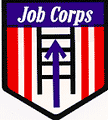|
Job Corps course title: Culinary Arts. Students in this class learn the theory and practice of food service safety and sanitation, measuring, tool and equipment use, pantry operations, customer service, food ordering, cooking, and menu planning for entry into the food service industry.
On the job, combined food preparation and serving workers combine basic food preparation and service. Short order cooks workers make simple, fast-cooking meals and snacks. They work in places like coffee shops, lunch counters, family restaurants and steak houses. Short order cooking is an intermediate step between combined food workers and restaurant cooks. Short order cooks are also called grill cooks, fry cooks, broiler cooks, breakfast cooks, or line cooks and work in places like coffee shops, lunch counters, family restaurants and steak houses. Restaurant cooks are experienced in all types of cooking and can prepare any item on the menu of a full-service restaurant. A full-service restaurant offers the customer many and complete meals including dishes that require a lot of time to prepare.
Back to Top
Cooks and Chefs are on their feet throughout their work day, and during mealtimes must work under pressure. They face such hazards as cuts and burns, and may be exposed to oily mists, dusts, fumes, and smoke. In a normal full-service restaurant, Cooks come in to work early in the day to start the preparation of sauces, soups, roasts, and other items that need a lot of time to cook and are needed for dinner. They may also prepare or supervise the preparation of lunch, cut meat, prepare portions of meat, and bake breads. Later on, Cooks or night Chefs make the final preparations and then do all of the broiling, sauteing and other last minute cooking. In businesses that hire many Cooks, each one may be assigned to a separate work station or a position in the production line. For example, one cook may be assigned to broiling. Experienced cooks have the ability to work at any station and sometimes move between stations.
As cooks gain experience on-the-job, opportunities for advancement may arise, and they may assist at various work stations and increase their skills. There are community college and other private culinary and hospitality industry training opportunities that aid in career advancement. There is also a three-year, State-approved apprenticeship program which is specially designed to prepare cooks for employment in full-service dining establishments.
In Santa Clara County the growth is projected to be average. Statewide the growth is affected in a downward trend by the diminishing economy.
Santa Clara County -
Entry Level/No Experience |
Median
$7.00 |
Low
$6.50 |
High
$8.50 |
To enroll in this San Jose Job Corps Course: 510 TABE Math/Reading score OR GED/HS diploma.
Job specific skills: Cooks need to have an excellent sense of taste and smell. They must be healthy, active, alert, clean, dependable, and work well with others. In addition, to being excellent Cooks must be creative in their cooking, and have a good business sense, and a lot of energy. They should also have good organization and supervisory skills. Professional Cooks usually provide their own knives, sharpeners, and other cooking tools. A basic set of cooking tools, usually obtained during training, costs from $300 to $500.
Back to Top
|
|



